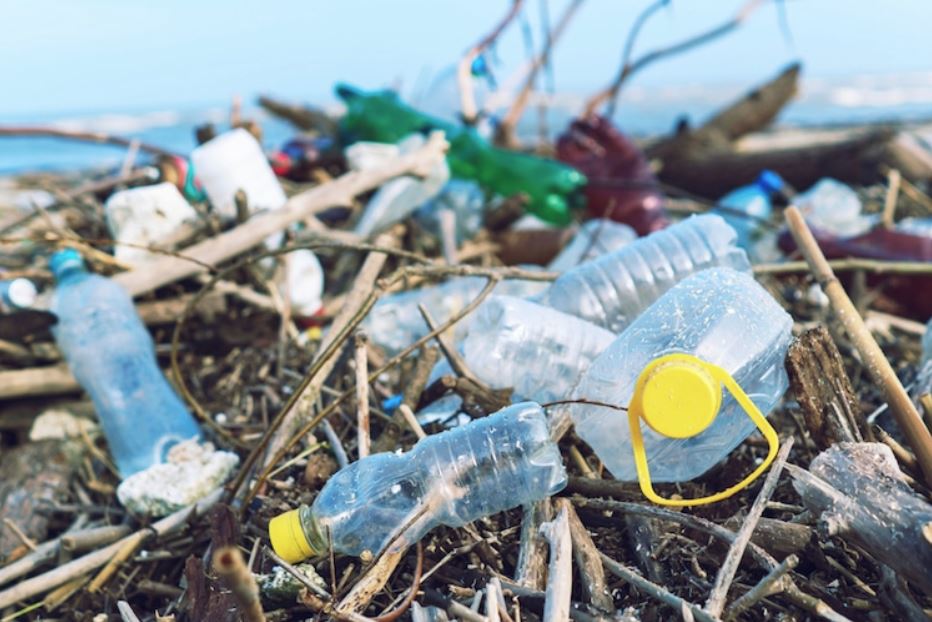by Way Papa Muse | Plastic Free Challenge

Single-use plastics, or disposable plastics, are used only once before they are thrown away or recycled. These items are things like plastic bags, straws, coffee stirrers, soda and water bottles and most food packaging.
We produce roughly 300 million tons of plastic each year and half of it is disposable! World-wide only 10-13% of plastic items are recycled. The nature of petroleum based disposable plastic makes it difficult to recycle and they have to add new virgin materials and chemicals to it to do so. Additionally there are a limited number of items that recycled plastic can be used.
Petroleum based plastic is not biodegradable and usually goes into a landfill where it is buried or it gets into the water and finds it’s way into the ocean. Although plastic will not biodegrade (decompose into natural substance like soil,) it will degrade (break down) into tiny particles after many years. In the process of breaking down, it releases toxic chemicals (additives that were used to shape and harden the plastic) which make their way into our food and water supply.
These toxic chemicals are now being found in our bloodstream and the latest research has found them to disrupt the Endocrine system which can cause cancer, infertility, birth defects, impaired immunity and many other ailments.
We produce hundreds of millions of tons of plastic every year, most of which cannot be recycled. It’s obvious that we need to use less plastic, move towards environmentally sustainable products and services and come up with technology that recycles plastic more efficiently.
I chose this article because it explains one of the larger problems within my topic. Although cosmetics tend to have a longer life span than one use, I thought this was useful in that it explains the effects of plastics on the environment. Through my research, I have found that the majority of cosmetic products include some sort of plastic material. Even though the lifecycle may be one month vs. single-use plastic being one day, it still is a contributor to this waste and has lasting effects on the environment.



